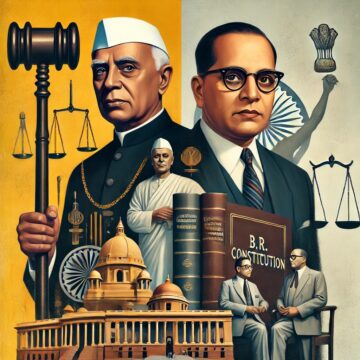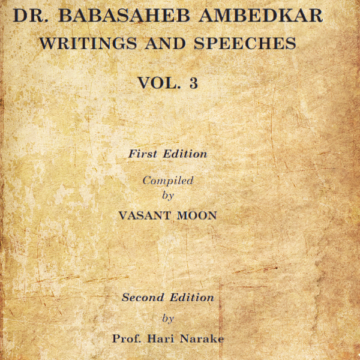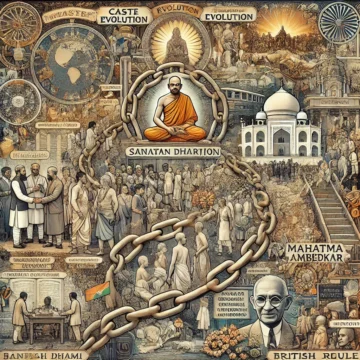Ambedkar's Buddhist Political Move was not merely a spiritual choice but a profound critique of Hindu caste inequalities. Influenced by his differences with Gandhi and frustrations with Nehru's policies, this move marked a strategic realignment towards more assertive Dalit activism, fundamentally challenging both traditional Hindu structures and contemporary political frameworks.
Tag: Ambedkar
Ambedkar’s Buddhist Conversion: Challenging Caste with New Faith
Dr. B.R. Ambedkar’s conversion to Buddhism was a monumental act that not only shifted religious identities but also challenged entrenched caste hierarchies in India. His decision, rooted in a profound critique of the caste system as institutionalized in Hindu doctrines, sparked a significant dialogue on equality and social reform.
Manusmriti Critique of Ambedkar and Its Modern Relevance
Dr. B.R. Ambedkar's critique of Manusmriti dissects its role in reinforcing outdated social norms and caste-based inequalities. This blog explores how despite its historical significance, Manusmriti's influence on modern Hindu practice and legal frameworks is minimal, urging a reflection on societal evolution towards more inclusive and equitable norms.
Ambedkar’s Criticism and the Manusmriti: Insights and Impact
Dr. B.R. Ambedkar’s criticism of Manusmriti highlights its role in institutionalizing caste hierarchies and gender inequalities. This blog explores the evolution from the varna system to a rigid caste framework, shaped by colonial policies and misinterpretations. It also examines modern legal reforms inspired by Ambedkar’s vision, promoting justice and equality in contemporary India.
Ambedkar’s Criticism of Manusmriti: A Modern Review
Dr. B.R. Ambedkar's critique of Manusmriti sheds light on its historical role in institutionalizing caste and gender disparities. This blog explores his viewpoints, contextualizes the Manusmriti within Hindu traditions, and examines its evolving relevance. By addressing these complexities, we reflect on Ambedkar's enduring impact on India's legal and societal frameworks, fostering equality and justice.
Poona Pact: Colonial Legacies and Enduring Divisions in Hindu Society
The Poona Pact of 1932, brokered amidst India's freedom struggle, was a crucial agreement between Gandhi and Ambedkar under British colonial influence. It aimed to preserve Hindu unity while addressing caste disparities, setting a stage for future social reforms and the ongoing discourse on affirmative action and equality in modern India.
Sanatan Dharma and Caste Evolution: Navigating the Pros and Cons
Explore the intricate layers of caste evolution within Sanatan Dharma through historical periods like the Mughal era and British colonial rule. Witness how figures like Mahatma Gandhi and B.R. Ambedkar shaped the modern perceptions and roles within the caste system, and delve into the ongoing debates over nepotism and caste-based privileges.








